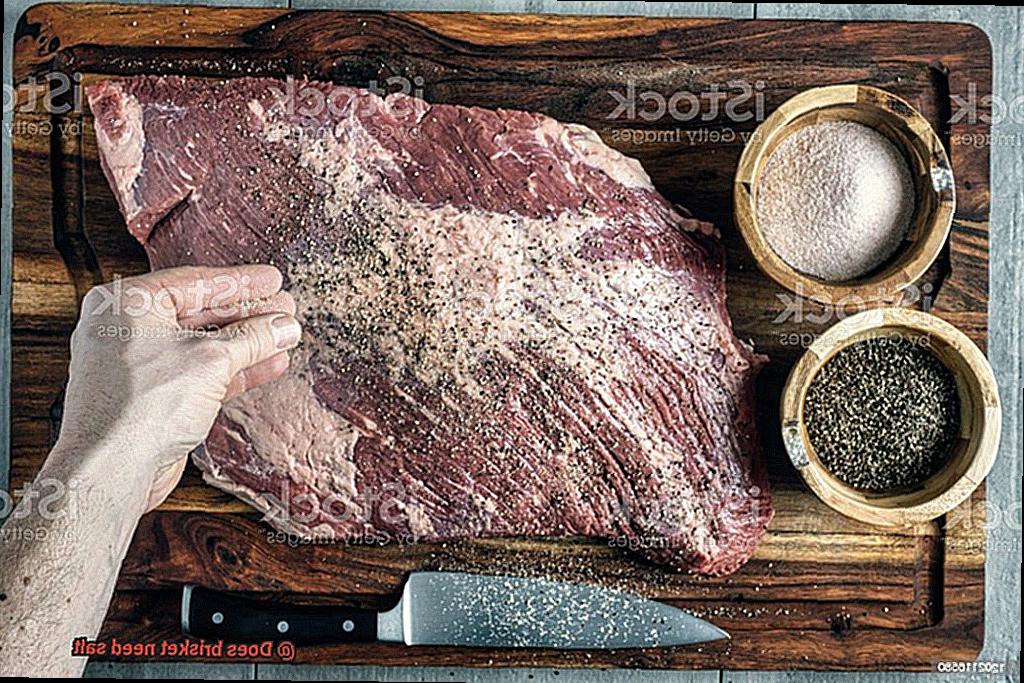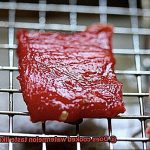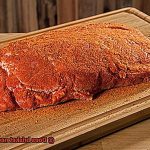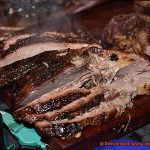Barbecue aficionados, gather around. Are you ready to discover the secret ingredient that can make or break your brisket game? It’s none other than salt. Brisket is a beloved staple of American barbecue, with each region boasting their own unique seasoning blend. But have you ever stopped to ponder whether brisket even requires salt?
Salt has been used for centuries to add flavor, preserve food, and ward off evil spirits. It’s a fundamental component of cooking that we often take for granted. However, when it comes to brisket, salt plays an essential role and should not be ignored.
In this article, we’ll delve into the significance of salt in creating the ultimate brisket. We’ll explore the science behind how salt enhances flavor, the various types of salt available, and the best techniques for optimal seasoning. Additionally, we’ll bust common myths about salt usage and teach you how to avoid over or under-seasoning your brisket.
So hold onto your hats because we’re about to take a deep dive into the world of brisket seasoning. Whether you’re a seasoned pitmaster or a newbie barbecue enthusiast, this article will equip you with all the knowledge necessary to whip up a tantalizingly delicious and perfectly seasoned brisket.
Contents
What is Brisket?
Brisket is a mouthwatering cut of meat that has become a staple in many barbecue restaurants and competitions. As an expert, I can tell you that brisket is taken from the breast or lower chest of a cow and is known for its tough texture that makes it perfect for slow cooking methods such as smoking or braising.
The brisket is made up of two parts: the flat and the point. The leaner, more uniform flat and the fattier, irregularly shaped point are both equally delicious and can be used in a variety of recipes.
While there are many ways to prepare brisket, seasoning with salt is one of the most popular methods to enhance its natural flavor and tenderize the meat. However, it’s important to note that not all briskets are created equal when it comes to salt. Some cuts may already have a high salt content due to processing or curing, while others may require more salt than usual to bring out their full flavor. Personal preference also determines the amount of salt needed when seasoning brisket.
Proper cooking techniques are essential for achieving a tender and flavorful result. Slow cooking over low heat keeps the meat moist and prevents it from drying out. Smoking the meat for several hours over wood smoke infuses it with a delicious smoky flavor that makes it stand out from other meats.
Braising brisket in a liquid such as beer or beef broth is another popular method that helps to tenderize the meat while adding even more flavor. Whichever method you choose to use, experimenting with different recipes and seasoning combinations is key to finding the perfect brisket for your taste buds.
Does Brisket Need Salt?
As an expert on all things barbecue, I’m here to tell you that the answer is a resounding yes.
Salt is an essential ingredient when it comes to cooking the perfect brisket. Not only does it enhance the natural flavors of the meat, but it also helps to balance out any bitterness and create a more harmonious flavor profile. But that’s not all – salt also plays a key role in tenderizing the meat and creating a crispy crust on the outside.
Let’s take a closer look at why salt is so critical in achieving the best possible brisket:
- Salt enhances flavor: One of the most important roles salt plays in cooking brisket is bringing out its natural flavors, resulting in a more delicious end result. Without salt, your brisket can taste bland and unappetizing.
- Salt balances bitterness: Brisket can sometimes have a slightly bitter taste, especially if it’s been smoked for a long time. However, with just the right amount of salt added to the mix, the bitterness can be balanced out to provide a more enjoyable flavor experience.
- Salt tenderizes the meat: When you apply salt to the surface of the brisket, it draws out moisture through osmosis. This moisture then mixes with the salt to create a brine, which is then reabsorbed into the meat. This process adds flavor and breaks down tough muscle fibers, resulting in a more tender finished product.
- Salt creates a crispy crust: As moisture is drawn out of the meat by the salt, it creates a dry surface that can be browned and crisped up during cooking. This creates a textural contrast between the crispy crust and tender interior that is simply irresistible.
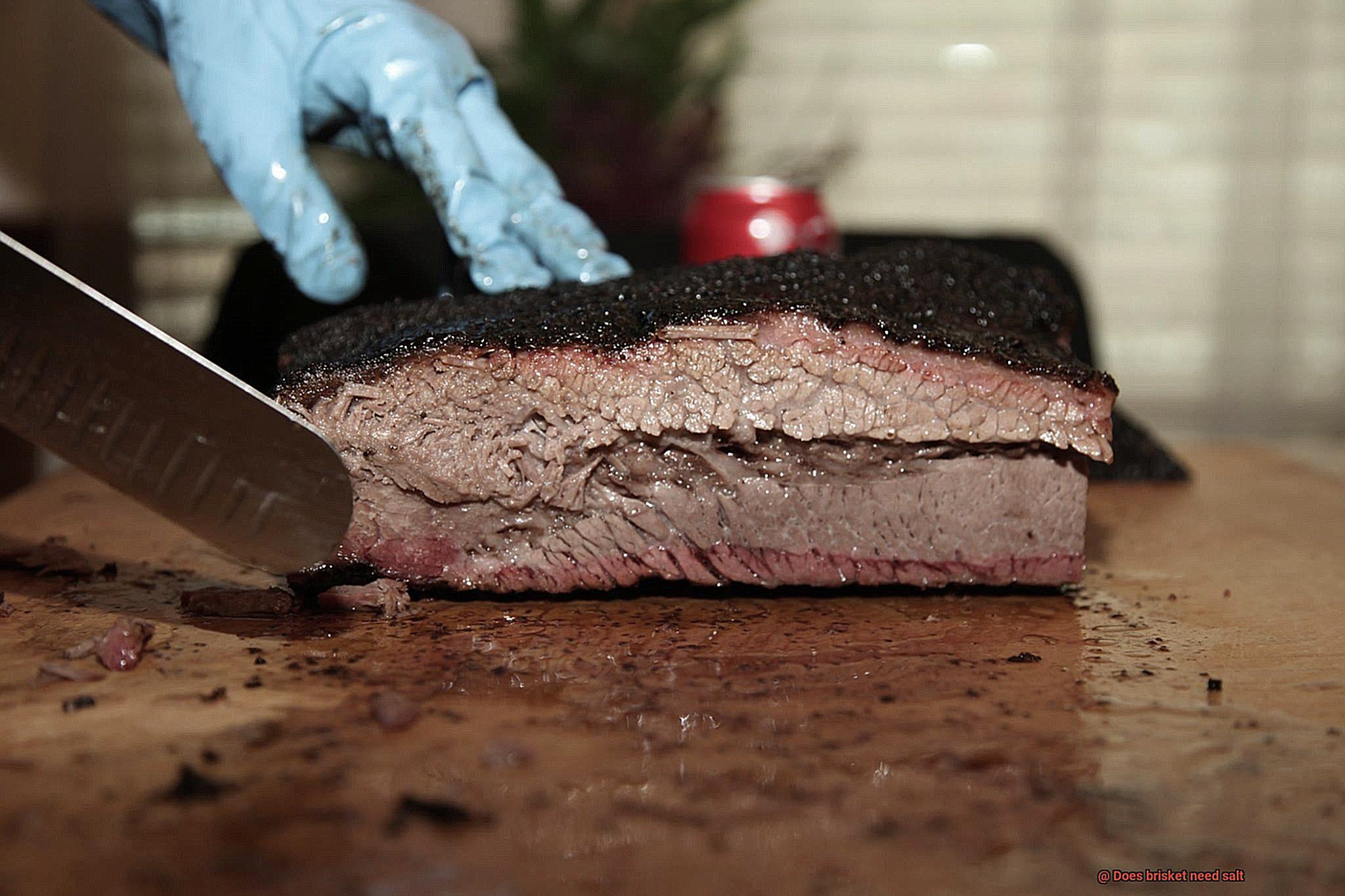
While too much salt can ruin a dish, when used in the proper amount, salt is an essential ingredient for creating a mouthwatering brisket that will leave your taste buds singing.
Benefits of Adding Salt to Brisket
That’s right – this simple seasoning can work wonders for your meat, bringing out its natural flavors and transforming it into a mouth-watering dish that will have your guests begging for seconds.
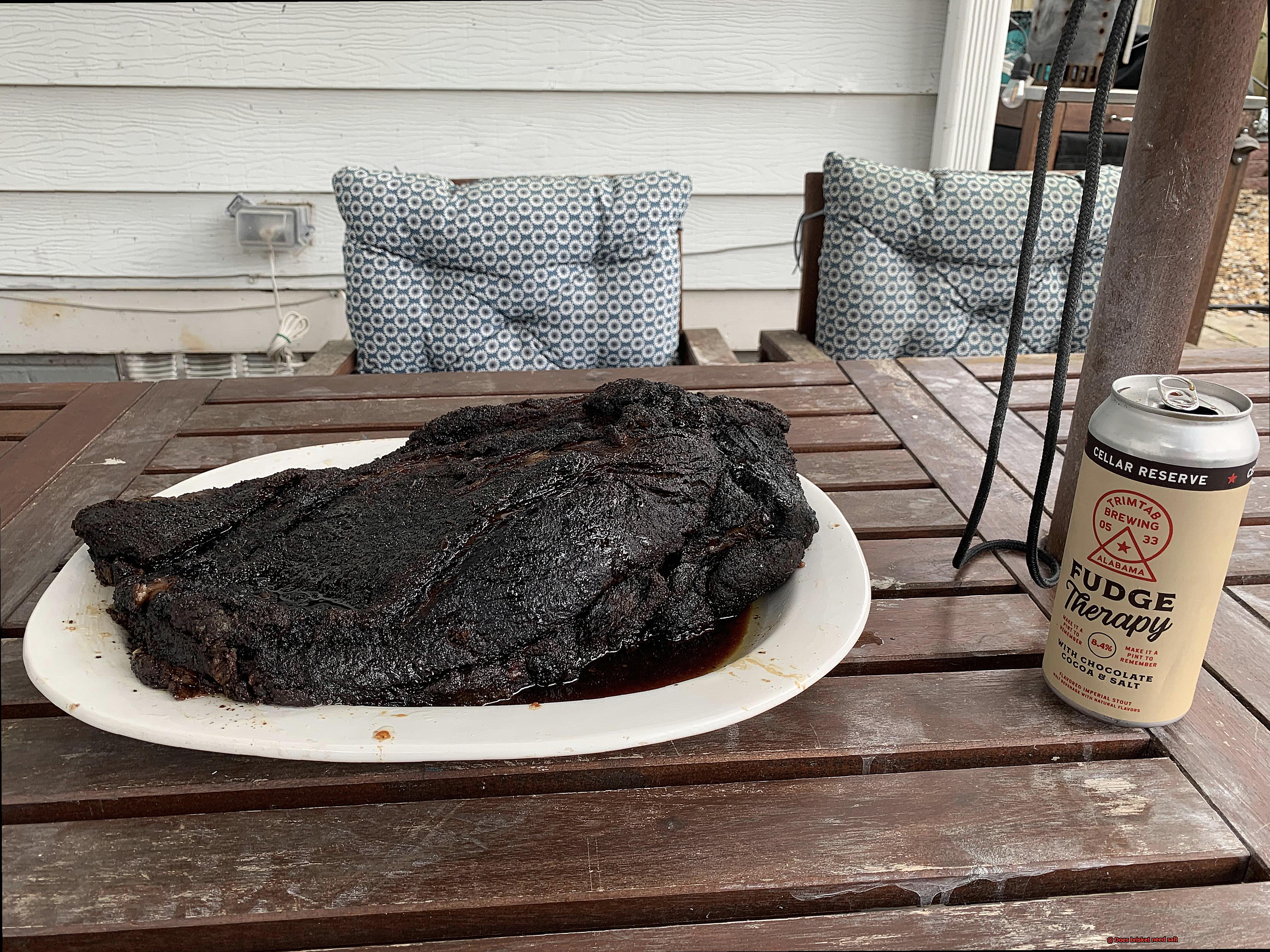
One of the key benefits of adding salt to brisket is its ability to tenderize the meat. By breaking down the proteins and retaining moisture during cooking, salt ensures that your brisket will be juicy, succulent, and easy to chew. No more tough and dry meat.
But that’s not all – salt also enhances the flavor of your brisket. When used in combination with other seasonings like black pepper, garlic powder, and paprika, it can add a savory depth that will leave your taste buds dancing with delight.
Of course, not all salts are created equal. If you want to achieve the perfect crust on the outside of your brisket, opt for kosher salt. Its larger flakes adhere better to the meat, ensuring that every bite is perfectly seasoned. Table salt, on the other hand, can dissolve too quickly and result in uneven seasoning.
Different Ways to Add Salt to Brisket
Brisket is a beloved cut of meat that can be cooked in various ways to create a delicious meal. One crucial step in the cooking process is adding salt. Salt not only enhances the flavor of the meat but also helps to keep it moist during cooking. Here are five different methods you can use to add salt to your brisket and take it to the next level.
Dry Rub
A dry rub is a mixture of spices and herbs that are rubbed onto the surface of the meat before cooking. Salt is a key component of a dry rub, creating a nice crust on the exterior and enhancing the flavor of the meat. To make a dry rub, mix salt with other desired spices and herbs, such as black pepper, paprika, garlic powder, and onion powder.
Brine
A brine is a mixture of water, salt, and other ingredients used to soak the meat before cooking. The salt in the brine helps tenderize the meat and infuse it with flavor. To make a brine for your brisket, dissolve salt in water and add any other desired ingredients, such as sugar, apple cider vinegar, bay leaves, and thyme.
Marinade
A marinade is a mixture of liquid and seasoning used to flavor and tenderize meat. A salt-based marinade can be made by mixing salt with any other desired ingredients, such as olive oil, lemon juice, Worcestershire sauce, and honey. Letting the meat soak in the mixture for several hours will infuse it with flavor.
Injection
An injection method involves using a syringe to inject a mixture of liquid and seasoning directly into the meat. This method allows you to get the flavor deep into the brisket, ensuring that every bite is flavorful and delicious. To make an injection solution, mix salt with any other desired liquids or seasonings, such as beef broth, garlic powder, and soy sauce.
Sprinkle Salt
If you prefer simplicity, you can sprinkle salt over your brisket before cooking. However, it can be challenging to ensure that the salt is evenly distributed over the meat. To ensure even distribution, mix the salt with other desired spices and herbs and apply the mixture evenly over the surface of the meat.
How Much Salt Should You Use?
Brisket is a meat that demands to be seasoned with salt. However, figuring out the appropriate amount of salt can be challenging. Using too little will leave your meat bland, while using too much will make it inedible. So, how can you hit the sweet spot when seasoning your brisket? As an expert in this field, I have compiled some tips to help you get it just right.
The first step is to determine the size of your brisket. As a general rule of thumb, use 1 teaspoon of salt per pound of meat. This means that if your brisket weighs 10 pounds, you’ll need 10 teaspoons of salt. However, this is only a starting point.
The most effective way to determine the right amount of salt is by taste testing. Before cooking your brisket, taste it and adjust the seasoning as needed. If it tastes under-seasoned, add more salt until it tastes just right. But be cautious – it’s better to use less salt and add more later than to over-salt your meat.
It’s also crucial to consider any other seasonings you may be using in addition to salt. If you’re using a rub that already contains salt, you may need to adjust the amount of additional salt you use accordingly.
When seasoning brisket, less is often more. It’s better to err on the side of caution and use less salt than too much. You can always add more salt later if needed, but once the meat is over-salted, there’s not much you can do to fix it.
Alternatives to Adding Salt to Brisket
When it comes to cooking brisket, salt is often used as the go-to seasoning to enhance its flavor. However, for those looking to limit their salt intake or avoid it altogether, fret not. There are several alternatives to adding salt that can still provide a mouth-watering and savory result.
Herbs and Spices:
Herbs and spices are an excellent alternative to salt. It’s amazing how much flavor these little powerhouses can add. Garlic, onion powder, paprika, cumin, and chili powder are all great options that complement the beefy taste of brisket.
You can mix and match these seasonings to create your own unique blend that’s sure to tantalize your taste buds. Fresh herbs like rosemary, thyme, and sage can also be used to add a fragrant aroma and earthy taste.
Acidic Ingredients:
Acidic ingredients like vinegar or citrus juice can help tenderize the meat while adding a tangy flavor that complements the beefy taste of brisket. A marinade made with apple cider vinegar and brown sugar can add sweetness and tanginess while also tenderizing the meat. Tomatoes or tomato sauce can also be used as a base for your cooking liquid to add acidity and depth of flavor.
Flavorful Liquids:
Using flavorful liquids like beef broth or beer can provide a rich taste without adding additional salt. These liquids can be used as a base for braising or slow-cooking the brisket for several hours until it’s tender and succulent. Additionally, you can include Worcestershire sauce or soy sauce to add an umami flavor that will elevate your brisket’s taste.
Tips for Cooking a Delicious Brisket
If you’re looking to cook a delicious brisket that’s full of flavor and tenderness, then salt is the secret ingredient you need. As an expert in cooking delicious brisket, I can tell you that using salt in your recipe is essential to bringing out the natural flavors of the meat and creating a more tender end result. Here are some tips for using salt in your brisket recipe:
Choose Kosher Salt
Kosher salt is the preferred salt for seasoning brisket as it has larger crystals than table salt and dissolves more slowly, allowing the meat to absorb the flavor gradually. Additionally, it has less sodium per teaspoon than table salt, making it a healthier option.
Season Generously
Don’t be afraid to season your brisket with a good amount of salt. A good rule of thumb is to use one tablespoon of salt for every five pounds of meat. This will ensure that every bite is packed with flavor.
Season in Advance
To give the salt enough time to penetrate the meat and enhance its flavor, it’s best to season your brisket at least an hour in advance or even better, overnight. This will allow the salt to break down the tough fibers of the meat and create a more tender end result.
Don’t Forget Other Seasonings
While salt is crucial, don’t forget about other seasonings that can add even more flavor to your brisket. Some popular options include black pepper, paprika, garlic powder, and onion powder. Be sure to experiment with different seasonings to find your perfect blend.
Use Salt in Moderation
While salt is an essential component of cooking a delicious brisket, it’s important not to overdo it. Too much salt can actually make the meat tough and dry, so be sure to use it in moderation.
8RlnrqM7Kis” >
Conclusion
To truly elevate the flavor of your brisket, salt is an indispensable ingredient. Its ability to bring out the natural flavors of the meat, balance out bitterness, tenderize the beef and create a crispy crust on the outside is unparalleled. However, it’s important to note that not all briskets are created equal when it comes to salt usage – personal preference and cut type will dictate how much seasoning you need.
There are a variety of methods for incorporating salt into your brisket recipe, including dry rubs, brines, marinades, injections and simple sprinkling before cooking. It’s crucial to keep in mind other seasonings you may be using in addition to salt and taste testing before cooking your brisket.
For those looking to limit their sodium intake or avoid it altogether, alternatives like garlic powder and paprika can provide a similar depth of flavor. Additionally, acidic ingredients like vinegar or citrus juice can help tenderize the meat while complementing its rich taste.
In summary, whether you’re a seasoned pitmaster or just starting out on your barbecue journey, understanding the importance of salt in creating an unforgettable brisket is key.

